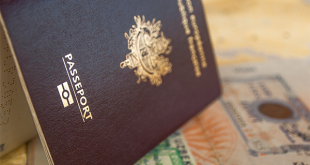For international students, the cost of living in Singapore varies depending on various factors such as their lifestyle choices, accommodation options or just personal preferences. While Singapore stands out for being a lively and cosmopolitan city, it is also one of the most expensive cities in the world. That’s one of the reasons why it’s important for foreign students to plan their budget ahead and accordingly if they hope for a comfortable stay. Here is a breakdown of some common expenses for students to consider when it comes to the cost of living and studying in Singapore.
Table of Contents
Cost of Studying in Singapore
Tuition fees vary depending on the level of education, the institution, as well as the student’s nationality. It can happen that tuition costs in the country are higher than what applies in the neighboring countries. Yet, it remains affordable compared to what you’ll pay if you study in the US, in the UK or in Canada. Moreover, like it’s the case anywhere in the world, education in a public university is less expensive than in a private institution.
One factor affects highly the amount of tuition fee students pay in Singapore, and it’s their nationality. That’s why, accordingly, there are 4 categories of fees in the country, including:
- Non-subsidized fees per year
- Annual subsidized fees charged to Singapore citizens
- Annual subsidized fees charged to permanent residents in Singapore
- Subsidized fees per year payable by international students
On average, the subsidized fee for studying in a public university in Singapore costs around SGD 8,000 – SGD 9,000 (around USD 6,000 – 6,790) per year. It can raise at SGD 30,000 (around USD 25,000) for non-subsidized fees and up to SDG 50,000 per year (USD 38,000) for dentistry and medicine programs. It can also happen that the program gets subsidy from the government, which reduce the amount of tuition fee, regardless of the students’ nationality.
This lower tuition is then offered to eligible students, who then apply for the MOE (Ministry of Education) Subsidy. As for international students, they can apply for the Service Obligation Scheme to benefit from reduced tuition fees. It’s a government system that allows them to work in Singapore after graduation, in order for them to refund their tuition fees. This scheme, however, applies only to postgraduate students.
Living Cost in Singapore for International Students
International students in Singapore spend, on average, about SGD 1,500 to SGD 3,300 a month on living cost, including housing, bills and other essential expenses. This amount will vary depending on your lifestyle and course of study. Read as follows an estimated guide on the average basic expenses an international student may have in a month.
Accommodation
Accommodation expenses typically form a significant portion of students’ living cost, as it ranges between SGD 600 and SGD 2,800 per month. In Singapore, there are various options available including:
- Homestay is for students who want a unique cultural experience during their study stay in Singapore. Usually, homestay costs include meals and utilities. Moreover, prices range between SGD900 and SGD2,000 per month.
- On-campus accommodation in the form of halls of residence, residential colleges, houses or student residences. These accommodations are typically provided by the universities and offer convenience and proximity to campus facilities. The cost of on-campus housing varies between SGD 2,800 and 5,500 at NUS.
- Room rental off-campus is the third option, where you’ll be living in a property with students, or families that have a spare room. Rent in this case varies between SGD 800 and SGD 1,800 per month for a single room and between SGD 600 and SGD 900 for a shared room.
- Property rental is the last option where you rent an entire property furnished or not. This is a great option for graduate and postgraduate students who plan to flat share with friends. This costs between SGD 2,000 and SGD 5,000 per month for a 2 or 3-bedroom unit.
We’ll elaborate more on the subject in our guide on student accommodation in Singapore.
Food and Dining
Singapore is known for its diverse culinary scene, allowing international students to explore a variety of cuisines. Here’s an estimated breakdown of monthly food expenses:
- On-Campus Dining: Universities typically have on-campus canteens or food courts that offer affordable meal options.
- Hawker Centers: Hawker centers are open-air food complexes that serve a variety of inexpensive local and international dishes. These are popular among students and locals alike. Budgeting around SGD 5 to SGD 10 per meal in hawker centers can help you manage your food expenses.
- Restaurants and Cafés: Dining at restaurants or cafés can be pricier than other options. However, occasional dining out can still fit into your budget if you allocate around SGD 13 to SGD 30 per meal.
- Grocery shopping: Cooking your meals is always a cost-effective option for international students. Singapore has well-stocked supermarkets and local wet markets where you can purchase fresh products and groceries at reasonable prices.
Overall, you can set a basis of SGD 20–40 per day for 3 meals. Therefore, budgeting around SGD 600 to SGD 1,200 should cover you depending on your lifestyle and dining choices.
Transportation
Singapore boasts an efficient and well-connected public transportation system, making it convenient and affordable for students to get around. Here are the common modes of transportation and their associated costs:
- Mass Rapid Transit (MRT) and buses: The MRT and buses are the primary modes of public transportation in Singapore. Bus fares vary based on the distance traveled, with prices ranging from SGD 0.93 to SGD 2.80 per trip. MRT fares on Singapore’s railway system varies from SGD 0.45 to SGD 2.80.
- Taxis and ride-sharing services: Taxis and ride-sharing services like Grab are also available in Singapore. Taxis charge flag-down rates that cost between SGD 2.80 and 3.90, with additional charges based on distance and time. Ride-sharing services offer competitive prices and often have promotional discounts available.
Public transportation costs in Singapore are generally affordable. Plan a monthly budget of SGD 80 to SGD 120, depending on your frequency of travel.
Miscellaneous Costs
Apart from tuition fees, accommodation, and daily expenses, there are additional miscellaneous costs to consider. This includes:
- Utilities: such as electricity, water, and internet services. On average, monthly utility bills can range from SGD 100 to SGD 200. This depends on consumption and the size of the accommodation. Moreover, a mobile phone subscription costs between SGD 48 and 108 depending on the plan and your personal usage.
- Books and Supplies: Depending on your field of study, you may need to allocate a budget for textbooks, study materials, and other supplies. The cost can vary depending on the course requirements but can range from SGD 100 to SGD 400 or more per semester.
- Health Insurance: It is mandatory for international students to have a valid Hospital & Surgical (H&S) insurance. This covers them for 24 hours H&S cares in Singapore. The minimal coverage limit should amount to SGD 20,000 per person at Singapore Government Hospitals for the duration of their stay.
- Personal Expenses: Personal expenses such as clothing, entertainment, and personal care items should also be considered. The amount can vary between SGD 30and 300 depending on individual preferences and lifestyle choices.
Living in Singapore can be costly if students fail to mind their choices regarding accommodation and lifestyle. We can’t emphasize enough the importance of planning and budgeting wisely to ensure a comfortable living without compromising your financial stability. By considering the factors discussed in this article, you have all the tools to make informed decisions and manage your finances effectively during your studies in Singapore.




 Aljawaz Your guide to study abroad
Aljawaz Your guide to study abroad










